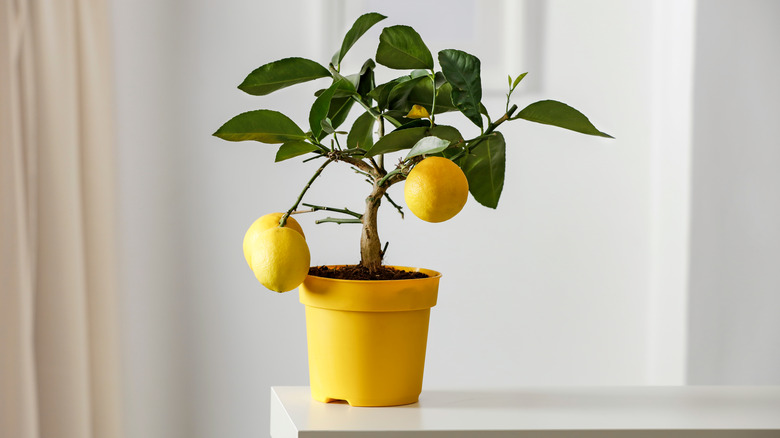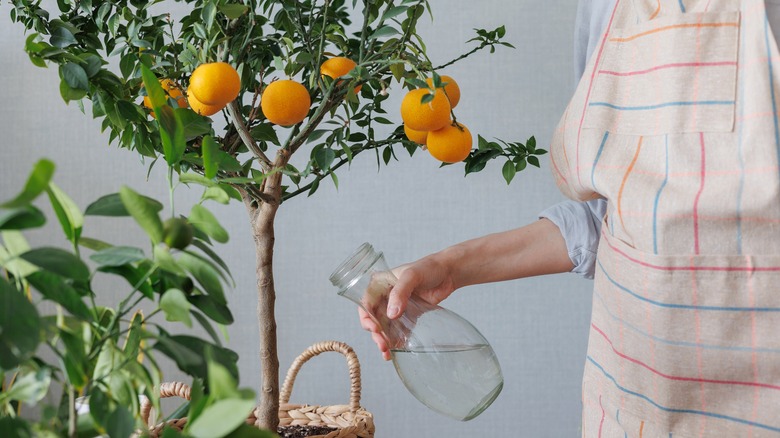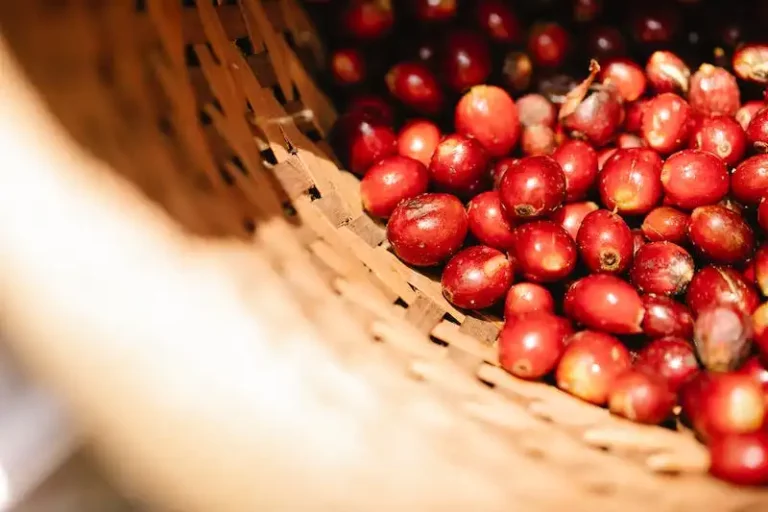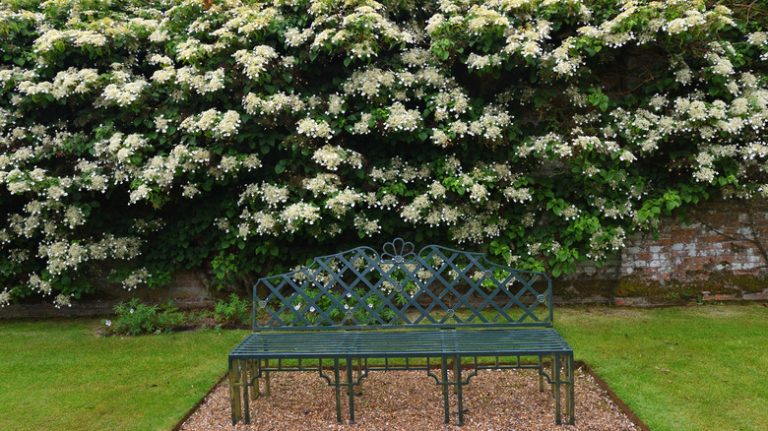Garden Trees, Shrubs & Vines
Desirée O
There are many ways to make your kitchen a welcoming, cozy, and stunning space, including having plenty of plants around. Along with a range of succulents, ferns, and flowers, you may also consider planting a tree in your kitchen. While this might seem like a trendy option, Lucy St George, co-founder of Rockett St George, told Livingetc, “Greenery is going nowhere. With so many of us spending more time at home, the need to connect with the natural world through our interiors is stronger than ever.”
While that might be nice during warmer months, it can be even more ideal during the winter if you happen to live in an area that experiences cold weather with zero greenery. Growing trees in your home can ensure that you have a connection to nature at all times. That’s not to mention the fact that they can help keep the air in your interior space clean, which will, in turn, potentially keep you healthier, according to a 2024 study published in Trends in Plant Science.
To put it simply, planting a tree in the kitchen is an advantageous option, and it is also quite easy to do. Of course, you can’t simply run out and grab whatever tree strikes your fancy. You need to figure out which trees work best in a kitchen space and if you’re able to give them the kind of set-up they will need to survive and thrive.
Trees that might suit your kitchen

S_Photo/Shutterstock
There are plenty of options when it comes to trees that you can grow inside, as well as ones that might be right for your home. Although larger varieties may not work in smaller homes, there are still ideal options that won’t be too tall and will appreciate a stable environment. For instance, there are various mini and mid-sized palm trees that are delightful and suitable such as the Areca Palm, Lady Palm, and Parlor Palm. Other trees that like indoor spaces are the Umbrella Tree, Yucca, and Weeping Fig. You might even be intrigued by the idea of having a banana tree in your kitchen.
Of course, a kitchen is also the perfect place for trees that grow their own food, which you can then pick and eat on the spot. Consider planting a lemon, lime, or orange tree as well as a peach or passion fruit tree, not to mention ones that grow nectarines and apricots. You may even want an avocado or olive tree in your home. If you give your tree — or multiple indoor trees — the kind of proper TLC they need, then you might end up with both a gorgeous plant and delicious home-grown fruit in your house.
That might leave you wondering what kind of arrangement a tree might need if you want to plant one in your kitchen, and if that’s something you’re able to provide.
What a tree will need in your kitchen

My July/Shutterstock
Once you’ve figured out what kind of indoor trees you might want to have in your kitchen, you also have to consider if you can create the kind of arrangement and environment they need. This includes making sure they will receive just the right amount of sunlight and get enough (but not too much) water, as well as enough space to grow. For a tree, you also want to think about whether it’s best to put it in a pot or to plant it directly in the floor — yes, in the floor, not just in a pot on top of it. For the latter, Kristin Monji, a certified arborist, horticulturist, and the principal landscape designer of Birch & Basil Design, told House Beautiful, “[I]t will take some doing and a unique set up.”
Indeed, to place a tree directly in the floor, you’ll need to make sure you get a few things ready. Along with prepping the room and having the ability to dig down into the floor, you also need to provide the proper soil, while also ensuring that the tree’s roots have a way to drain well. If you have these conditions in place, you can grow a tree in your kitchen that is just as healthy as one that lives outside.



